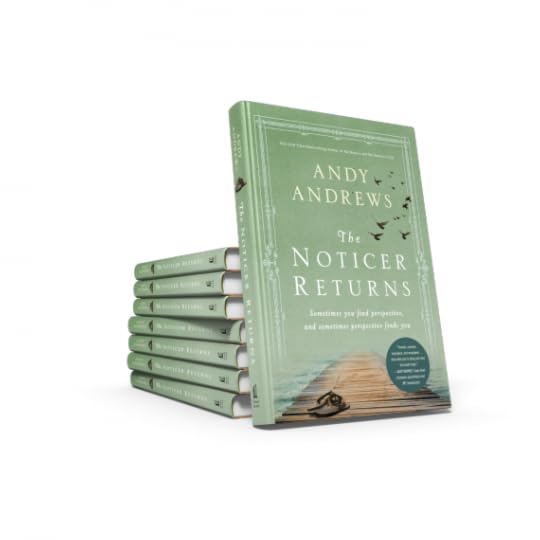Jeff Goins's Blog, page 74
November 12, 2013
Write Less, Not More: How to Slice and Dice Your Content
One of my favorite essays on writing is, “Sh*tty First Drafts” by Anne Lamott. I read it in college, and it changed the way I approached the craft.
Over a decade later, it still has a profound effect on me.

Photo Credit: LarimdaME via Compfight cc
Lamott’s thesis is simple: All first drafts suck, so get it over with. The point is to dismiss the myth that says you can write something amazing on your first attempt — or that you should even try.
Such an approach removes the mysticism of the writing process and relieves the pressure to pump out a piece of pure genius at the start.
Most writers want to be geniuses
There’s no question about it.
Writers, at least the ones I know, want to be remembered for their words. They want to leave a legacy. But very few believe a dull, drawn-out process will get them there.
Ironically, that’s precisely what it takes to go down as one of history’s heroes.
I am the world’s least patient person, especially when it comes to writing. I want everything I write to be amazing now, not later. But here’s what I’m learning:
Genius is something very simple — but not easy. It is less a result of inspiration and more a byproduct of effort.
But what does that look like, practically?
How to get your words remembered
Do the sayings of Confucius, Emerson, and Jesus remain with us today because they’re long and exhaustive — or because they’re concise and profound?
The latter, of course.
History remembers our words not for how much we said, but for the weight of what we said.
Take the Gettysburg Address, for example. One of the most famous speeches in American history, this brief oration delivered by the sixteenth president clocks in at just under five minutes.
Initially, Lincoln was criticized for his brevity (at a time when the length of a speech was often equated with quality). But over a century later, most Americans can easily quote the iconic beginning:
Four score and seven years ago…
Think of every famous movie line, political speech, and quote you’ve ever heard. Why did it stick with you? Was it because of the length of the content?
Usually not.
Great communicators present their points in the most concise and challenging way possible. They rid themselves of any distractions that interfere with the core message.
I want to be that kind of writer, the kind that cuts the fluff and focuses on the meat of what I have to say. And the only way to do it is to write a terrible first draft.
Where to begin
You can’t edit anything until you have a first draft.
I don’t put a lot of stock into spurts of inspiration or sudden strokes of genius. For me, a lot of the “genius” stuff happens over time, as a result of the editing process.
Sure, you might stumble upon some random nugget at three a.m. But what will take it from inspired to published? Even genius needs a process to purify raw ideas into complete concepts.
Most successful writers go through a rigorous process of shaping and reshaping their content before they have something worth sharing.
How do they do this? They write every day. They share their work with a friend. They edit, tweak, and ship.
Here’s what you need to do…
You need to commit to writing something — anything — today.
Maybe it’s just a sentence or the title to your next blog post. But get it down. Don’t worry about quality or even quantity. Just write.
Write to get it out of your brain and onto paper (or screen). Do it now.
Then, start slicing and dicing, cutting and chopping until what you have looks nothing like what you started with. But that’s okay because what you started with — remember this — was a really bad first draft.
The bottom line is this: Write less, not more. In order to do this, ironically, you will write more than you ever thought you should. And then you will, as Stephen King says, kill your darlings. It’s all part of the process.
Slicing down to the only the essentials is, after all, how you get to genius. So what’re you waiting for? Grab a pen and get to work. And don’t forget that genius is more about process than epiphany.
Reminder: Tomorrow is the LAST day to register for Tribe Writers. After this, you won’t be able to join the course until sometime next year. Find out more…
How have you learned to slice and dice your content to get down to your own genius? Share in the comments.
You just finished reading Write Less, Not More: How to Slice and Dice Your Content! Consider leaving a comment!
Are you ready to embrace the "in-between" and experience all life has to offer? Check out my new book.

November 9, 2013
The Secret to Living the Adventurous Life (It’s Not What You Think)
The best stories start with the most unlikely characters.
They never quite fit the bill, but they’re always passionate — risk-takers, rough around the edges, and a little bit naive to the disaster that awaits them.
And I’m discovering that’s what it takes to live an adventurous life.

Photo Credit: Let Ideas Compete via Compfight cc
My story of insanity
I moved from Colorado to Georgia for a job, the perfection of a position eclipsing any fear or reservation I had. Shoving everything I could into a teeny two-door sedan, I drove 24 hours to a state I knew nothing about.
For the first three weeks of my life as a Georgia Peach, I cried every single day. Overwhelmed and under-qualified, I considered that, for the first time, maybe I’d just done something truly crazy.
And then things got worse. I was asked to lead a group of my peers in growing a community of storytellers.
I accepted the challenge, not knowing what I was getting myself into.
The first meeting
A few weeks later, we all sat around my living room — some on the couch, some on the floor, all clutching steaming mugs of coffee as if it were the elixir of life.
They looked at me expectantly, and I looked right back. We were there to tell stories, or maybe to learn how to tell them better — we weren’t quite sure.
As my face grew red and my palms began to sweat, I blurted out the first question that came to my mind:
Why do you care about telling stories?
And, miraculously, that was all it took. The questioning eyes and morning grogginess faded away into a flood of passion as, one by one, they explained their love for stories.
We’d seen the life-changing impact of one person’s honesty. We’d seen lives saved, money raised, marriages rescued, and people brought together — all through the power of story.
The passion hung in the air, and we were left with one all-important question:
If stories are this powerful, why don’t more people tell them?
The saddest epiphany
Together, we tossed out ideas and chewed over solutions like flavorless gum. Was it insecurity or lack of experience? Fear or a lack of training?
But those answers lost momentum mid-air. It wasn’t a lack of experience that was stopping these potential storytellers.
People weren’t aware they even had a story to tell.
But we all do, and this is one of my favorite things about life: Our messy past, current disasters, and most recent failures can teach us and help us grow into the kinds of people we were born to be.
And if we’re paying attention, we can even take what we’ve learned and offer it to someone else, bringing wisdom, comfort, and inspiration to another.
Call it advice, words of wisdom, or even mentorship. I call it storytelling.
And we are all capable of it.
How to live a great story
When your life is the same, day after day, though, it’s hard to believe you’re living a story someone would call great.
It seems like great stories are reserved for the world-travelers, the thrill-seekers, the fearless. But that’s just not true.
And for the first time for many of us, my friends and I began to believe that we were already living great stories.
The life we were longing to live had little to do with specific events and everything to do with posture: a willingness to try something new and see what had been there all along.
Together, as we told more stories, we observed that the beautiful and miraculous were always unfolding around us, inviting us to dance and dream together. We just had to take time to see.
That’s the secret: pay attention. You just might be surprised at what you see.
Birth of a magazine
In doing this, we saw a need, knowing how impossible a great story feels from the confines of a everyday existence.
And we wanted to change that.
It became our dream to tell the stories of people who were already living courageously every day, taking risks and making little leaps to see this life for the adventure that it is.
That’s how our little magazine got started — as a rag-tag group of rough-around-the-edge storytellers too naive to know the risk we were taking.
But we’re ready. Ready to lend our voices, declaring to the world that everyone’s story matters and every life has the makings to be called great.
It just takes time to notice the things we tend to miss and a willingness to share the story inside you.
Read the latest issue of Venture Magazine for free here, and if you have a story of venturing out to tell, you can submit it here.
What story of adventure in your own life have you overlooked? Share in the comments.
You just finished reading The Secret to Living the Adventurous Life (It's Not What You Think)! Consider leaving a comment!
Are you ready to embrace the "in-between" and experience all life has to offer? Check out my new book.

November 6, 2013
You Don’t Need to Become a Better Writer
Every day, I get a message from a writer who wants to be “better.”
They want advice on how to improve their craft or what it takes to get an agent or how to break through their creative blocks. But often what they really want is affirmation that they’re good enough.
And this is missing the point.

Photo Credit: Pink Sherbet Photography via Compfight cc
You don’t need to become better; you need to be bolder.
In order to get the kind of attention your words deserve, you need to earn our trust, to give us permission to be ourselves.
And the best way to do that is to go first. To tell that story of abuse. To confess your fears. Admit you were wrong.
Only when you go there, when you risk humiliation and rejection, will we listen to what you have to say.
Until then, you’re just wasting your words.
Writing isn’t about being good
It’s about telling the truth.
“Good” is about what other people think. It’s about badges and accolades and pleasing the masses.
Trying to be “good” gives other people permission to hold you back, to keep you from being who you are: a writer.
Yes, you a writer. One who writes. Not necessarily one who is published or praised. But someone who uses words to create change. And you don’t need to become “better.”
You need to start telling the truth.
When we tell our truth, we tap into a part of the unconscious self that we’re afraid of, the part people need. You may think of this as your soul; whatever the name, it’s what creates the kind of connection people need, the kind that changes lives.
Good isn’t good enough
Good won’t get you where you want to go. It won’t get you published, and it certainly won’t earn you a raving fan base. Only honesty can do that.
The problem is most writers seek first the approval of others and then chase their art — when it ought to be the other way around.
If you are going to say something worth our attention, something we haven’t heard yet, you must be yourself.
Write from the heart even, no especially, when it scares you. Because that’s the stuff worth reading.
If you do this over time, if you keep practicing not in a safe place but out in public where you could get rejected, you will get better than you were.
You will be good. But not my good or your parents’ good. Your good. The only kind that really matters.
If you want to join a community of writers who are committed to boldly sharing their stories and telling the truth, check out Tribe Writers, which relaunches today at 12:00 noon.
How have you believed the myth of “better” when you should’ve been bolder? Share in the comments.
You just finished reading You Don't Need to Become a Better Writer! Consider leaving a comment!
Are you ready to embrace the "in-between" and experience all life has to offer? Check out my new book.

November 5, 2013
Every New Author’s Greatest Enemy (and How to Beat It)
A year ago, when I noticed that some of the same people who were buying Michael Hyatt’s book Platform were also buying my eBook, I saw an opportunity.
Since Mike was making a mad dash for the best sellers list, I decided to piggyback on his success, dropping the price of my already-affordable eBook a couple of bucks to put it in the impulse buy range.
Why did I do this? Because I was trying to overcome the greatest enemy every new author faces…

Photo credit: zigazou76 (Creative Commons)
Anonymity. That’s the real enemy here. Not brick-and-mortar stores or other authors or even the “eBook revolution.”
Irrelevance — that’s what kills you before you begin. And if you’re trying to get your words noticed, you face the same antagonist. Here’s why…
We don’t read authors we don’t know
Of course, there are exceptions to this.
We might take a chance on a random book we’ve never heard about, but not very often. And usually we mitigate these risks by getting them at the library or in the bargain bin.
More often than not, we humans naturally avoid taking chances with our wallets. We read books from names we recognize. And this is why we keep reading those authors.
So what does the undiscovered author who has a message the world needs to hear do? She finds a way to get her name out there. And the best way to do that? Be generous.
If you’re stingy with the world, it will be stingy right back at you.
Fortunately, the reverse is also true.
We don’t buy books we haven’t heard about
Let’s be clear: Authors don’t sell books; they spread ideas.
Don’t believe me? Look at the following bestsellers from the past decade or so:
Harry Potter: A boy finds out he was born to wizard parents and destroyed the most powerful dark lord when he was a baby.
StrengthsFinder 2.0: Instead of trying to improve your weakness, each person should focus on what they do best.
Blue Like Jazz: Jazz doesn’t resolve; neither does God.
The Hunger Games: In the future, kids are forced to kill each other for TV entertainment.
Those are just a few, but each offers a unique and interesting idea. Sure, the writing is good, but beyond that, the idea behind the book is remarkable.
You get a book to sell by first getting an idea to spread. [Tweet that]
Try as you might to spam your way to the top. There’s one way to win when it comes to sharing a message the world needs to hear, and that is by serving other people.
We want what other people have
If you could give away a thousand copies of your book to sell 10,000, would you do it? What about 10,000 to sell 100,000?
Most authors would say yes, but few are willing to take the chance, to be that generous. And that, my friend, is where you fail.
Once an idea tips, it goes from nobody caring about it to everybody talking about it. You have to work and earn your way into this realm, but once you get there, it doesn’t matter how much you charge for your book.
$5, $15, $25 — who cares? People want it, because other people have it.
But until you get there, readers will nickel and dime you to save a few pennies. Instead of arguing and haggling, why not take all the energy and spend it on getting your idea to spread?
This is a lot more fun than the alternative
By no means have I mastered this. I’m learning this stuff as I share it.
However, I can honestly tell you that building a platform through generosity is a lot more fun than building one through stinginess.
If you have something people need to hear about — a story, an idea, a whatever — why not quit trying to sell it and start trying to spread it?
When giving is its own reward, what do you have to lose?
If you’re a published author needing help getting your book to spread OR you’re unpublished but have a message the world needs to hear, check out Tribe Writers.
The next class begins tomorrow. Sign up for the waiting list so you don’t miss a thing!
What’s the greatest obstacle you’re facing right now? Share in the comments.
You just finished reading Every New Author's Greatest Enemy (and How to Beat It)! Consider leaving a comment!
Are you ready to embrace the "in-between" and experience all life has to offer? Check out my new book.

November 2, 2013
What a Change in Perspective Can Do: Interview with Andy Andrews
In this interview, I talk with New York Times best-selling author and world-renowned speaker Andy Andrews about his new novel, The Noticer Returns.
We also talk about what it takes to tell a great story and why we all need a little more perspective.

The Noticer Returns
Listen to the interview
Listen in a new window | Download
About Andy and his new novel

Photo credit: Christy Haynes
Andy Andrews has been called “one of the most influential people in America.”
He is the author of several bestsellers, including How Do You Kill 11 Million People?, The Noticer, and The Traveler’s Gift, and a popular public speaker.
Andy has spoken at the request of four different U.S. presidents and was called “the best speaker I have ever seen” by Zig Ziglar.
He lives in Orange Beach, Alabama, with his wife, Polly, and their two sons.
His latest book, The Noticer Returns, is about how little things can make a big difference — if we choose to notice them.
To find out how you can win a free copy of the book, read below.
Interview highlights
In this interview (that clocks in just under 30 minutes), we talk about:
How a real-life “noticer” changed Andy’s life by altering his perspective forever
Why how we think affects who we become
What a best-selling author’s writing process looks like
The reason you should be reading more fiction
How stories teach us far better than facts do
Tweetable moments
“We tend to listen more when we’re forced to.” [Tweet]
“Don’t believe everything you think. What you think is what you know. And wisdom goes beyond what you know.” [Tweet]
“Wisdom is what separates average people from extraordinary people.” [Tweet]
“Motivation is a myth. Encouragement is fine. Proof is better.” [Tweet]
“Stories connect in a way that nonfiction cannot.” [Tweet]
Get a free copy!
Andy has been gracious enough to offer five free copies of his new book to some lucky readers! Here’s what you need to do to enter:
Tweet or share on Facebook a link to this post.
Leave a comment answering the question below.
Wait to hear from me via email to see if you won a copy. If you don’t hear from within the next week, you can assume you didn’t win. Winners are chosen at random.
How has a change in perspective changed your life? Share in the comments.
You just finished reading What a Change in Perspective Can Do: Interview with Andy Andrews! Consider leaving a comment!
Are you ready to embrace the "in-between" and experience all life has to offer? Check out my new book.

November 1, 2013
Four Things You Can Stop Worrying About (Because They Don’t Matter)
As a writer, I’m a thinker by nature. I need to think about what topics to delve into and how to best express them. But sometimes, thinking can get me into trouble.
Maybe you can relate.
Often, our thinking goes into overdrive and turns into fixating. And we end up spending (or should I say “wasting”?) a lot of time ruminating on things that don’t matter, things that keep us worried and distracted from reaching our goals.

Photo Credit: spaceodissey via Compfight cc
Here are four things you can stop worrying about — forever:
1. People who are doing better than you
We’ve all been there.
“What — THAT book is a bestseller? The plot is terrible and the writing is filled with grammatical errors!”
“My four-year-old could have come up with that!”
“I had that same idea last year. They just got lucky.”
Really, this reaction is more about us than it is about them. We could have done better if only we’d actually written that novel or pitched the idea.
But where the successful person took action, we stalled.
Action trumps perfection. Stop thinking about all the worse-than-you writers and entrepreneurs who are making it big and instead, use them as motivation.
After all, if they can land that awesome assignment or end up on the bestsellers list even with all their flaws, you can do it, too. If you only forget perfection and take action.
2. The competition
It’s a bad idea to share your ideas and contacts in such a competitive market. After all, there’s only so much to go around, right?
Wrong.
In my 16-year career as a freelance writer, I’ve discovered there are more than enough opportunities for everyone.
And the more I helped out writers who wanted to brainstorm ideas or know how to contact the nutrition editor at Health magazine, the more other writers shared information and opportunities with me.
In fact, I can calculate at least $50,000 of work over the years that came from networking not with editors or agents, but with other writers who passed my name along to people needing writing.
Wall yourself off from other writers because they’re your “competition” and the universe will wall you off from writing opportunities. Instead, consider other writers your friends and colleagues, and share, share, share.
3. What the market wants
The surest way to lose your unique style and quash your brilliant ideas is to become obsessed with figuring out what the market wants.
Often, the market doesn’t even know what it wants until it gets it. How could it?
Of course, you want to create something others will like, but don’t lose your voice trying to conform to what you imagine will appeal to the largest demographic.
Maybe you’ll start a trend instead of following one.
4. Rejection
A “no” from a gatekeeper can bring on obsessive thoughts in any person’s mind:
What’s wrong with my work?
What’s wrong with ME?
Maybe I should just quit.
The people who succeed in this world are the ones who can blast past rejection.
After all, this is a numbers game. What would have happened if JK Rowling hadn’t racked up all those rejections for the Harry Potter series, or Steve Jobs had never returned to Apple after being fired from the company he started?
Rejection isn’t about you. It isn’t even about your work. It’s a sign that what you have isn’t exactly what the permission-givers need right now.
I got 500 rejections from magazine editors — at least — and still made a great living writing mainly for magazines. For me, each “no” was a stepping stone to the next “yes.”
Maybe the same can be true for you… if you can let go of what your friends are doing, what the world wants, and what the critics think — and just persevere.
How about you? What do you need to stop worrying about? Share in the comments.
You just finished reading Four Things You Can Stop Worrying About (Because They Don't Matter)! Consider leaving a comment!
Are you ready to embrace the "in-between" and experience all life has to offer? Check out my new book.

October 31, 2013
Writing Secrets from Cheesy Halloween Movies
Ever stumbled upon one of those bad horror movies on TV and not been able to turn the channel? It’s harder than it should be, isn’t it?
I admit I’m a sucker for a classic scary movie. Especially on Halloween. I just can’t help it. I think it’s because they speak to my passion for writing.
What is it about these films that we find so irresistible?
In a word: SUSPENSE
Believe it or not, there are valuable lessons to be learned from Freddy Krueger, Jason, and Michael Myers that will make you a better writer.
Building suspense is all about intentionality. It takes time and effort. Without it, your writing becomes flat and flaccid.
And this doesn’t just apply to horror writing. There is an essential tension to all effective writing that keeps the reader engaged — whether it be memoir, investigative journalism, historical fiction, or another genre.
“Don’t look behind you!”
Most people have the wrong idea about communication. They think good writing or speaking breaks down into three parts:
Say what you’re going to say.
Say it.
Say what you just said.
This is, without a doubt, absolutely wrong and ridiculous.
In reality, great communication is more akin to telling a scary story.
Every good horror movie is full of surprises. This is what we love about this genre; you never know exactly what’s going to happen. But you know something will happen.
This is why you can’t merely tell your audience what you’re going to tell them, tell them, and then remind them. There has to be mystery to the story. It has to build on itself.
Slow, but deadly
Don’t you hate it how zombies can walk so slowly and yet still kill so many people?
I never understood why Michael Myers could limp down a street towards a topless, screaming girl and still cut her to pieces. But he did. Hundreds of times.
There is something slow and methodical to his rampages that are like a bad dream. No matter how slowly the villain walks, you can’t run fast enough.
This is what you must do with your plot — build it slowly and intentionally, moving towards the anticipated end. Don’t jump ahead of each point; focus on what you have to say now. And slowly, but surely, you’ll arrive at the end.
Always end with a twist
The best part of a good thriller is the surprise ending. Just think of any M. Night Schmyalan film or Michael Jackson’s Thriller music video.
We want to be surprised. We want to be shocked. We want to be caught off-guard.
I always try to guess the ending before it happens and rarely am I right. This is why I find these movies so addictive. They’re exciting.
A good piece of writing ends with a twist — whether it be Harry Potter, The Bible or The Notebook.
And here’s mine: I don’t really like Halloween movies. But I like good writing. And for some reason, I’ll sit through a horror flick, all because of the build-and-release of a suspenseful story.
I want to get better at this — asking and answering questions through my writing. Just like This American Life on NPR. Or A Farewell to Arms. Or even Nightmare on Elm Street.
Don’t you?
Share your favorite scary movie in the comments.
You just finished reading Writing Secrets from Cheesy Halloween Movies! Consider leaving a comment!
Are you ready to embrace the "in-between" and experience all life has to offer? Check out my new book.

October 29, 2013
Here’s How a Group of Writers Is Building an Entrepreneur Center in Africa
When I launched an online course to help writers find their voices and build an audience, I had no idea what it would turn into.
A year later, I’m still in awe.

Classroom in Africa
I envisioned a small community of maybe a hundred people like me who wanted to turn their blogs into a larger readership.
But since Tribe Writers began, I’ve been stunned by how this little idea has turned into a thriving community of over a thousand members — not just bloggers but novelists and journalists and pastors and so many different people — all committed to helping each other sharing their messages with the world.
Something incredible happens when you bring people together and give them permission to be themselves. They give and connect in extraordinary ways.
The course has changed my life — by providing enough income for me to quit my job and become a full-time writer — but also through how it has demonstrated the power of community.
The fruit from the course
Since launching Tribe Writers, we’ve seen people own their identities as writers, publish books, and launch award-winning blogs. And we’re just getting started.
Honestly, I had no idea this would turn into something so bigger than a mere writing course.
People have traveled tremendous distances, built intimate friendships, and supported each other’s work in a hundred different ways — all because of Tribe Writers.
It’s been cool to watch, especially since a lot of this happened without my involvement.
Sharing the love
So a few months ago, I had an idea:
What if we could take what makes this community so special and share with others? What if we could take some of our resources and apply them to doing even more good?

A building like the one we’ll be building
I called my friend Travis and told him I wanted to give 10% of the next course launch to his organization, which empowers local leaders in Africa to end extreme poverty in their own communities.
He agreed, and a few weeks later, I got some news that blew me away:
Travis told me with the money we were donating, we could build a workshop that would serve as a training center for local entrepreneurs — women whose only other means of income was begging or prostitution.
Not only that, but the classroom the women are currently using will be freed up so more kids can go to school. We’ll also be bringing electricity to a school, medical clinic, church, and the workshop we’re building.
“Dude…” I said, “Are you sure? It wasn’t that much money.”
He laughed. “Yes, I’m sure. That kind of money goes a long way in Kenya.”
“Well, then… what could we do with even more?”
He encouraged me to consider raising the amount to provide electricity for a medical clinic.
So that’s just what we did.
Now, here’s where you come in…
We have a few thousand dollars left to raise to complete the two campaigns, and I want to invite you to be a part of this.
In fact, I’d love to make it worth your while. If you make a donation to either campaign in the next week, I’m going to reward you:
If you donate $25, you’ll get a copy of my eBook, You Are a Writer, and my audio program, The Writer’s Studio, plus a writing worksheet.
If you donate $75, you’ll get the above plus my Kindle publishing program AND the never-before-released audiobook of You Are a Writer.
If you donate $200, you’ll get a free Tribe Writers membership, plus all of the above.
I believe in generosity and would love to be able to say “thank you” in this way, so please don’t be bashful.
How to participate
If you’d like to participate in this campaign, here’s what you need to do:
Visit this page.
Select what campaign you want to support by clicking “GIVE THROUGH” on the right-hand side of the screen.
Make your donation of $25, $75, 0r $200.
Forward the email receipt to jeff at goinswriter dot com with “Know Think Act” in the subject line.
Be patient while my assistant sorts through the emails and sends you the bonuses (give it a week before following up, please).
This promotion expires on November 5, 2013 or when both campaigns are complete (whichever comes first). This might go fast, so act now!
About the cause
A quick note on Know Think Act: This is an organization that I believe in and support. My friend Travis started it and runs it with the utmost integrity.
They have a 100% donation model, which means every penny you donate goes directly to the need. Read more about their values and beliefs here.
I hope you’ll consider supporting this cause. Leading this community has been a great honor for me, and I’m excited about how we’ll continue to change the world together.
Update: In only a few hours, we’ve already met our goal for the first campaign (the income-generating workshop). But you can still give to this campaign. Better hurry!
How have you seen the power of community change the world — in some small or big way? Share in the comments.
You just finished reading Here's How a Group of Writers Is Building an Entrepreneur Center in Africa! Consider leaving a comment!
Are you ready to embrace the "in-between" and experience all life has to offer? Check out my new book.

October 25, 2013
How Hope Changes Everything
If you’ve ever written a book or a poem or maybe a song, then you know one of the first questions people tend to ask you is, “Why?”
Why did you write that? Why did you create that?
I think it’s a fair question. People want to know about the heart behind your creation, why behind what you do.

Photo Credit: fusion-of-horizons via Compfight cc
Since the release of my new book, I’ve been asked that question a lot:
“Pete, why did you write it?”
My answer? Well, I really believe hope changes everything. I believe it can disarm guilt, shatter shame, and put your past in its place.
All you have to do is make the choice to let hope in.
It won’t be easy.
It won’t be quick.
But it’s possible.
Even if you’ve experienced pain in your past?
Yes, especially if you’ve experienced pain in your past.
You see, some people will never get beyond the pain of their past. It will wreak havoc in their personal and professional lives, because they will keep cursing their pain and it’ll keep cursing them back.
They’ll choose to believe they are inseparably attached to their past without realizing they are, in fact, making a choice to hold on to it. They will hold on to it in one of two ways:
they will give in to it with a self-loathing that ensures perpetual misery and failure, or…
they will wage an angry and desperate war against it in an effort to bury its devastation in self-denial.
Either way, they will never surrender the past pain. They will hold on to the idea that they shouldn’t have had to go through that pain and that life is not fair.
And they will, therefore, miss out on the brand-new ending that could be theirs.
Then there’s a group of people who will take a different path…
They will realize their past isn’t really their past. They will come to grips with the fact that their past pain is still impacting them and choose to rise above it.
In an incomprehensible twist, they will surrender their pain, instead of ignoring or denying there is strength in letting go. it. They will choose to be emptied of it.
And in a glorious miracle, God will actually use the pain of their past to help redeem others — in effect, allowing them to find purpose in the pain.
This choice isn’t easy. You have to choose to do something you think you can’t do. It requires a resolve that can only be found deep within your soul.
But this choice does nothing less than determine your destiny.
It all comes down to one choice
It’s the choice to let go of your desire to have life go the way you planned it. It’s the choice to find hope in your hurt.
It’s the choice called surrender.
There is strength in letting go. There is radical power in surrender. And I pray that today you begin your journey to let hope in today.
How has hope changed everything for you? Share in the comments.
You just finished reading How Hope Changes Everything! Consider leaving a comment!
Are you ready to embrace the "in-between" and experience all life has to offer? Check out my new book.

October 24, 2013
Have You Found Your Story Yet?
I’ve been dealing with an existential crisis lately: What’s my story?

Photo Credit: Frederic Mancosu via Compfight cc
Am I the writer who quit his job?
The dad who learned to slow down?
The guy who calls you to care about the world?
I once heard the best way to “find your passion” is to look at what you’re doing now, to “let your life speak” as Parker Palmer put it.
So what’s your life saying?
Or another way to put it: What bugs you? What’s wrong with the world that you could fix? If you had the power, what would you do to change things?
Finding my story in other people’s stories
Often in conversation, I will pull stories out of people. I want to know where they come from, what their dreams are, why they do what they do. It’s just something that comes natural.
If a person doesn’t know her story, I help her find it. If she does know, I help her figure out how to spread it. So as I was thinking about my purpose, it occurred to me:
Maybe my story is about helping other people find their stories.
A little meta, I know. But it got me excited. In fact, this is the thing that keeps me up at night and gets me out of bed in the morning. We all have a story to tell; and until we do, the world is missing an important gift.
The pain of not telling your story
There’s no greater agony than bearing an untold story inside you.
—Maya Angelou
I’ve felt that agony, seen the pain of untold stories in the eyes of strangers seeking permission to share.
For 20 years, I waited to be a writer: keeping the dream a secret, storing it inside my heart, safe from failure. When I finally owned my identity, my life was changed: I published a book, quit my job, and started helping others do the same.
It’s been an exciting couple of years.
And still, sometimes I wonder what would’ve happened had I never done that. What would my story look like now? Oliver Wendell Holmes paints this picture:
Alas for those that never sing,
But die with all their music in them.
The title of the poem is “The Voiceless” — an apt moniker for those who never let their stories out. Maybe my voice is found in helping the voiceless speak, in bringing untold stories to light.
I can think of little that excites me more.
Stories teach us how to live
Stories connect us. They engage the passion inside that makes existence not only bearable but beautiful.
Every time I hear a great story, it inspires me to live a better life. What’s more, I’m most alive when helping others discover their story, that message only they can share.
Which is probably why I created an online course.
I didn’t want this to be just another class, an empty exercise in rote education. I wanted it to be special, a means of empowering the voiceless and setting loose a thousand messages the world needed to hear.
And that’s just what happened — not because of me, but because of the power of story and relationship. Something amazing happens when people open up and connect with each other.
Perhaps it’s a bit selfish because I get such a thrill from it, but I want to see more stories. More honest illustrations of the ugliness of life; more beauty through pain; more life and love and all things that remind us of what it means to be human.
And if I can help make that happen in some small way, I’ll feel like my time on earth was well spent.
As far as I can tell, that’s my story. What’s yours?
(By the way, Tribe Writers is opening again soon. I’ll be sharing more about it in the next week. But for now, I’d love for you to consider if it’d be a good fit for you, and if you’d be good for it.)
If you had to identify the core theme of the story of your life, what would it be? Share in the comments.
You just finished reading Have You Found Your Story Yet?! Consider leaving a comment!
Are you ready to embrace the "in-between" and experience all life has to offer? Check out my new book.





